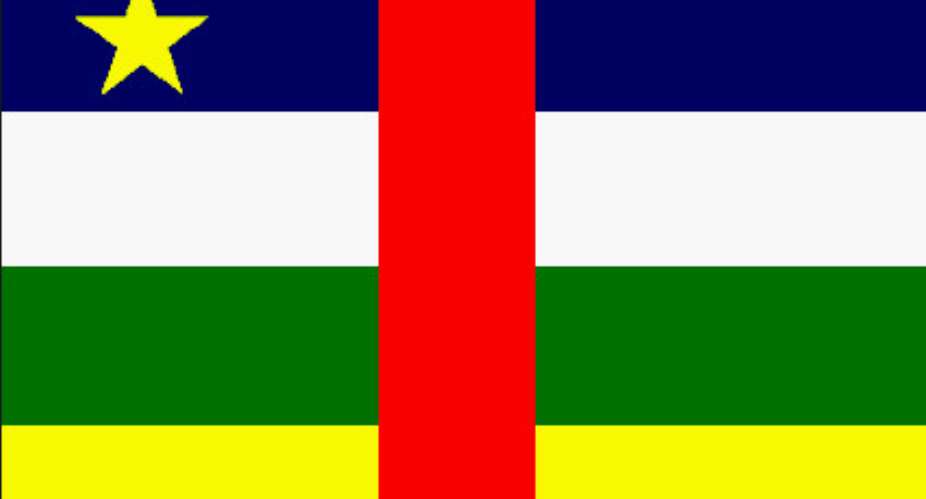The Central African Republic is a former French colony that has seen it all. Coups and army mutiny have followed one after another. Even the ousted president, Francois Buzize took power through a coup. The CAR is both a mineral and oil rich country that has the potential to become an economic powerhouse.
It is failing to reach its economic Canaan because it is frequently bogged down by endless military squabbles and coups that only benefit the ruling elite. At its tender age, it has already seen four bloody coups, with a severe loss of life. The current conflict has been rated the bloodiest of all. People are being massacred in broad day light, in the streets and on daily basis.
For a start, let me clue you into the events that have made this wave of conflict bloodier. A fragile peace was holding and a unity government was in place with François Buzize as president. Then Michel Djotodia, a former cabinet member, led an alliance of rebel groups that had a common goal of ousting the Bozize government. This union or Seleka (in the local Sango language) was made up of foreign mercenaries from Chad and Sudan. There was one problem, all of them were Muslims and so was Michel Djotodia. When they entered Bangui, the Seleka soldiers could neither speak French or the local lingua, Sango.
They had to look for Arabic speaking citizens of the country and they coincidentally happened to be Muslims. They welcomed and hosted them. Djotodia and the Seleka members had different agendas. Djotodias agenda was political and Selekas was religious. It was just a marriage of convenience. With Djotodia safe in the State House, the Seleka then began implementing their other, but, main agenda – Islamization. They started burning churches and butchering Christians wherever they could find them. Christian villages were pillaged with impunity.
The presence of Chadian peace keepers made no difference. They were accused of complicity, even supplying weapons to perpetrators. To non Muslims, the equation was simple, Seleka equals Muslim and Muslim equals Seleka. The lack of condemnation on the Muslim part was interpreted to mean condoning and even complicity. Non Muslims started forming defence squads which they called anti-balaka, meaning anti-machete. Their original intent was defence but it has now sadly turned to revenge. The brutal and unjustified killing of Muslims in the Central African Republic is a sad outcome of the above narration.
We can draw lessons from the Central African Republic. First, we should never allow politicians to capitalize on our sectarian divide. Secondly, any violence must be condemned regardless of the perpetrator and even when the perpetrator claims to commit it in our name. Thirdly, religious rhetoric should not be allowed to incite violence in whatever form and whatever name.
Fourthly, never underestimate the power of religion to cause death and chaos in a society, hence the need to always keep it under a balanced check so as to curb any spark of extremism. Fifthly, a stitch in time can save two. Had Bozizes plea for help been heeded, the French couldn't have been fighting the fire they are trying to quench now. Lastly, revenge is never a solution; it only creates a circle of the same.
When killings begin, it is religious commoners who perish while their heavy weights either fly out, or get locked up in a comical dialogue. It's interesting to note that while members are killing one another, ImmamOumar Kobine, the Muslim head of that country was offered refuge by Bishop Nzapalainga of Bangui.





 CODEO deploys 195 observers to monitor EC’s limited registration exercise nation...
CODEO deploys 195 observers to monitor EC’s limited registration exercise nation...
 Accra 2023: Minority demands accountability of $240million expenditure
Accra 2023: Minority demands accountability of $240million expenditure
 Man sets himself ablaze after failed attempt to kill his wife
Man sets himself ablaze after failed attempt to kill his wife
 EC targets 622,000 new voters in limited registration exercise
EC targets 622,000 new voters in limited registration exercise
 Election 2024: Mahama holds 19% lead over Bawumia among first-time voters — Glob...
Election 2024: Mahama holds 19% lead over Bawumia among first-time voters — Glob...
 Saglemi: Tenants’ Union threaten court suit against private partnership
Saglemi: Tenants’ Union threaten court suit against private partnership
 We've reduced the suffering Mahama left you – Bawumia to Ghanaians
We've reduced the suffering Mahama left you – Bawumia to Ghanaians
 It's still true, FX rate will expose weak economic fundamentals; cedi far better...
It's still true, FX rate will expose weak economic fundamentals; cedi far better...
 'I'm up to the task, competent, trustworthy, hardworking' – Bawumia
'I'm up to the task, competent, trustworthy, hardworking' – Bawumia
 EC begins nationwide limited voter registration exercise today
EC begins nationwide limited voter registration exercise today
